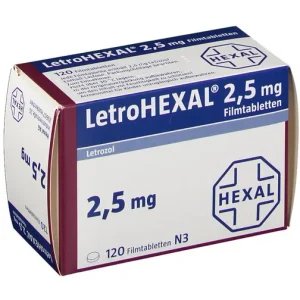Description
Particulars of Use
There are no efficacy data that would indicate the possibility of using letrozole for the treatment of men with breast cancer.
In case of doubt about the hormonal status of the patient, menopause should be confirmed by the results of biochemical studies (LH, FLH and / or estradiol levels) before starting treatment.
Renal impairment
There are no data on the use of letrozole for the treatment of patients with creatinine clearance of
<10 ml/min. Before prescribing the drug in such patients, the risk versus expected treatment effect should be taken into account.
Liver dysfunction
In patients with severe hepatic impairment (Child-Pugh class C) the systemic exposure and half-life of letrozole are approximately twice as long as in a healthy person. Such patients require closer monitoring.
Effect on bone
Since letrozole reduces estrogen concentration, a decrease in bone mineral density can be expected. During adjuvant therapy with letrozole in women with osteoporosis or at risk of developing this condition, bone mineral density should be assessed by bone densitometry, e.g. DEXA scans at the start of treatment. If necessary, treatment for osteoporosis should be initiated; patients should be closely monitored during letrozole therapy.
In the adjuvant setting, step therapy (2 years of letrozole followed by tamoxifen for 3 years) may be considered depending on the patient’s safety profile (see Sections “Dosage and Administration”, “Adverse Reactions”).
Menopausal status
In patients with unclear menopausal status, the levels of luteinising hormone (LH), follicle-stimulating hormone (FSH) and/or estradiol should be determined before starting treatment with letrozole. Only postmenopausal women should take letrozole.





Reviews
There are no reviews yet.